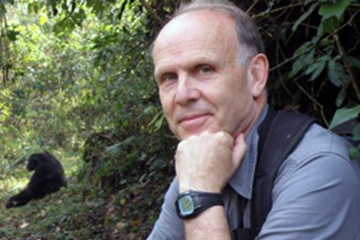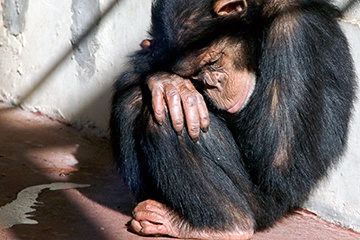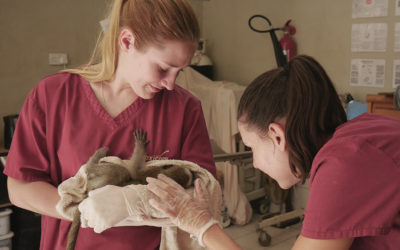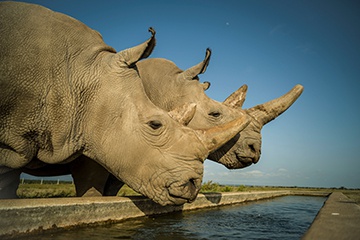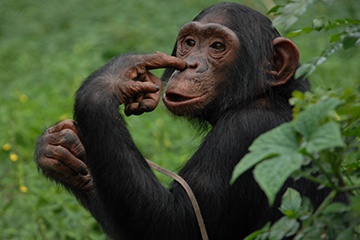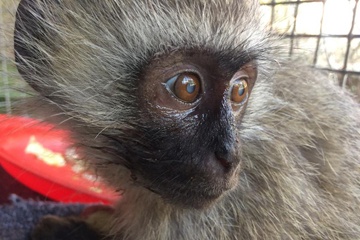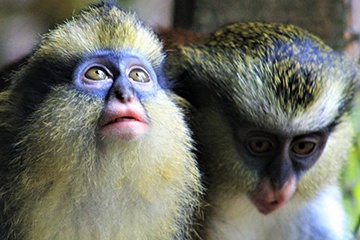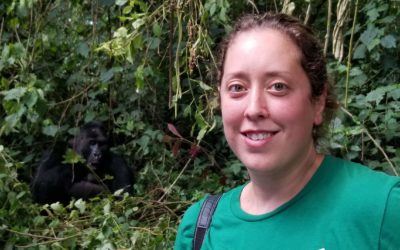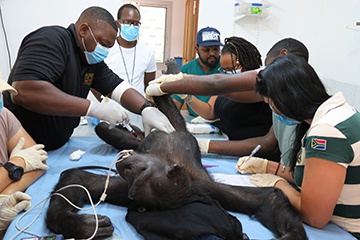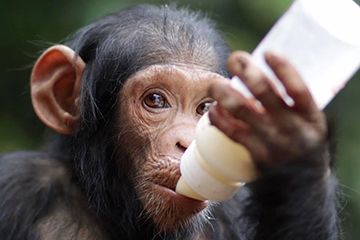Protecting Primates in the Democratic Republic of Congo
By Natasha Tworoski
The Democratic Republic of Congo is home to three PASA sanctuaries: Lola ya Bonobo, JACK (Jeunes Animaux Confisques au Katanga) and the Centre de Rehabilitation des Primates de Lwiro (CRPL).
Lola ya Bonobo is the world’s only orphaned bonobo sanctuary and was formed in 1994 when violence was just on the brink of starting again in the DRC. Founder Claudine Andre took on the presumed impossible task of raising infant bonobos, a task that had never been successfully achieved before, and did it while literally dodging bullets. The sanctuary now is home to 75 bonobos and has successfully returned a group to the wild. They will be releasing a second community of bonobos back to the wild within the year. Bonobos are an ape species found only in the DRC.
JACK is a chimpanzee sanctuary located in Lumbumbashi in the southeastern region of DRC. Started in 2006, they have rescued 45 confiscated chimpanzees. 40% of surviving chimpanzees, an endangered species, occur in the DRC and both the bushmeat trade and the pet trade are a constant threat. Focusing efforts on poaching has to be worth it for a country with so many other problems. Additionally, law enforcement must have an establishment with experienced caretakers in order for these animals to have a chance. JACK has provided just this for chimpanzees.
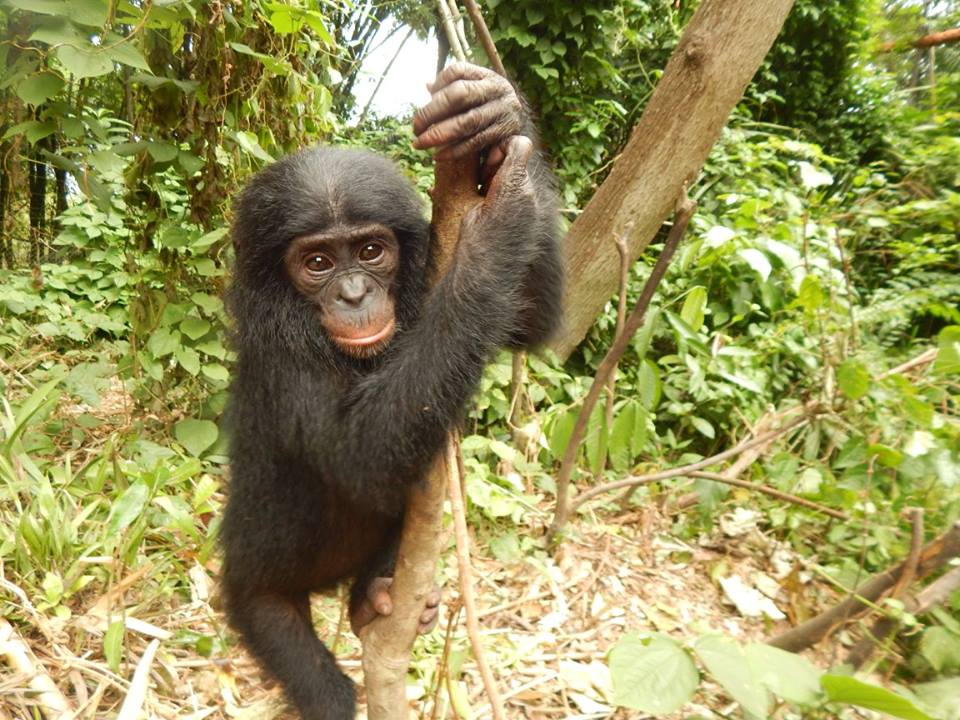
An orphaned bonobo at Lola ya Bonobo
The Centre de Rehabilitation des Primates de Lwiro is a primate sanctuary created in 2002, during the final years of Africa’s World War when poaching was skyrocketing. CRPL gives a second chance to chimpanzees, 11 species of monkeys, parrots, turtles, hyrax and porcupine. All are victims of poaching and the pet trade. With an impressive education program, they reach over 3,000 people per year and are developing a reintroduction program in order return animals to the wild.
In many African countries, it is considered taboo to eat great apes, so traps set are actually directed towards smaller species. While traps such as these (e.g. snare traps) still pose a great threat to apes as well, DRC is unique in that local beliefs and witchcraft believe consuming certain parts of great apes are medicinally beneficial and so they are directly hunted. Add to this the ever growing demand for baby apes and the future appears uncertain. Incredibly, three PASA sanctuaries are defying the odds by not only rescuing orphaned apes, but also educating the public and working with local law enforcement to protect the beauty and diversity found in this incredible place. Now more than ever, they need our support. Please consider donating to these heroes for wildlife.
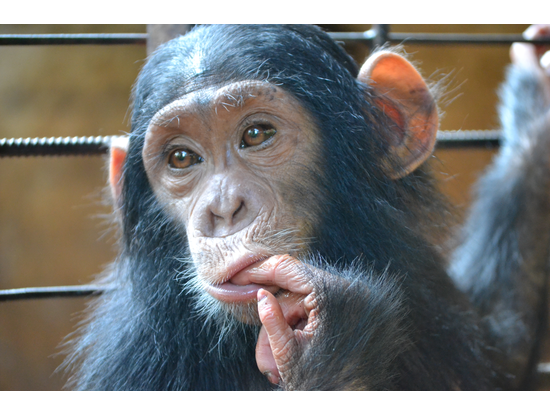
A young chimpanzee who was rescued by Lwiro
Next Posts
PASA Interviews Richard Wrangham
The Harvard primatologist and long-time PASA board member believes wildlife centers have a crucial role to play in the protection of endangered primates.
How the Illegal Pet Trade Endangers Primates
PASA’s new petition takes on social media giants on behalf of apes and monkeys. You can help!
Lilongwe Wildlife Centre: Malawi’s Only Wildlife Sanctuary
Rescues, rehabilitation, and the largest environmental education program in Malawi.
Saving the Last Remaining Northern White Rhinos
Dr. Stephen Ngulu of Sweetwaters Chimpanzee Sanctuary plays a crucial role in northern white rhino recovery.
Six Simple Ways Anyone Can Help Save Africa’s Primates
Here are some ideas you can incorporate into your life that make a difference toward saving Africa’s primates.
Caring for the Most Vulnerable
The Vervet Monkey Foundation has rescued a number of blind monkeys, some of whom lost their sight at the hands of humans. Sanctuary staff work hard to keep these special-needs primates safe and provide them with companionship.
Healing Orphans, Saving Lives: The Incredible Work of Ape Action Africa
Ape Action Africa is protecting Cameroon’s great apes through direct action, including rescuing orphaned gorillas, chimpanzees and monkeys, giving them a safe forest sanctuary home where they can live with their own kind.
Volunteer Spotlight: Meet Natasha
Long-term volunteer Natasha Tworoski shares her thoughts on PASA, the importance of sanctuaries, and how she got involved in the fight to protect primates.
On the Frontlines to Save Primates: PASA’s 2019 Veterinary Workshop
PASA veterinarians convene in Cameroon to discuss conservation, disease, and saving humanity’s closest relatives.
Life at Lwiro Primate Rehabilitation Center
Volunteer Natasha Tworoski shares her observations after visiting legendary PASA sanctuary, Lwiro Primate Rehabilitation Center.

